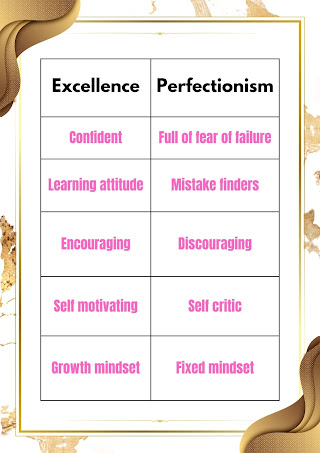Pedantic Perfectionism

When I wrote this topic today, everything talked about imperfection. This mental battle between perfectionism and imperfectionism made me understand that we are at the wrong end. Let me clarify what I really mean by this. When you go to school, does your teacher expect you to master everything on day one? The answer is no. For this reason only, assessments are towards the end of the term. I remember my brother and sister joining the drawing class. They are good artists because they have worked on it for ages, and I never did, so I am still imperfect in it. I still remember the days when I went to do machine embroidery. My teacher first said to make straight, concentric circles without stopping. The first day was, oh! Nothing was going well. Not even one line was straight. This is where we all are. We begin with imperfection. We were three people there, learning. All were my senior madams, and I was the junior most. We all practiced every alternate day. After a few days, my circl...